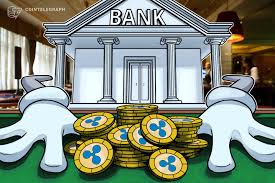In a landmark development, Syria’s Ministry of Finance has announced that the World Bank has approved a financial grant—the first of its kind in four decades—to support the rehabilitation of the country’s devastated electricity sector.
Describing the move as a “watershed moment,” Finance Minister Mohammad Yusr Barniyeh confirmed that the $146 million grant is not a loan but a direct, no-strings-attached financial contribution aimed at restoring Syria’s power infrastructure. He noted that this marks the World Bank’s first project in Syria in nearly 40 years.
In a LinkedIn post, Barniyeh expressed gratitude to the World Bank team and commended the efforts of staff at the Ministries of Finance, Energy, and Foreign Affairs for finalizing the arrangements. He added, “We look forward to broadening our cooperation with the World Bank and other international financial institutions to support Syria’s recovery and long-term development.”
Emergency Electricity Project
According to a World Bank statement, the grant falls under the “Syrian Emergency Electricity Project” (SEEP), which focuses on repairing war-damaged transmission lines and substations, while also helping to craft medium- and long-term investment and reform plans for the energy sector.
The project is not limited to internal reconstruction. It also includes efforts to reconnect Syria’s grid with neighbouring countries such as Jordan and Turkey, paving the way for Syria’s reintegration into regional energy networks. The plan provides for spare parts, maintenance equipment, and technical and structural support to enhance the sector’s institutional capacity.
Though the exact execution roadmap has yet to be detailed, informed sources say priority will be given to areas with the most extensive damage—particularly the governorates of Rural Damascus, Homs, and Aleppo.
A Broader Energy Revival
In late May, the Syrian administration signed an agreement with four international companies to expand the country’s power supply by 5,000 megawatts through a mix of gas and solar energy projects. The initiative—called the “Syria Energy Revival Initiative”—was overseen by Syria’s transitional president, Ahmad al-Sharaa, and attended by U.S. envoy to Syria, Thomas Barak.
The agreement, whose operational costs and contract duration have not been publicly disclosed, involves Qatar’s UrbaCon Concessions Investments as the lead developer, along with Turkey’s Kalyon Energy and Cengiz Enerji, and the U.S.-based Power International.
A Sector in Ruins
The power sector in Syria is among the hardest hit by the war, with widespread destruction of power plants, substations, and distribution points. Routine maintenance has been nearly impossible for years. In many areas, electricity is available for just one or two hours a day, pushing citizens to rely on costly and unreliable alternatives such as batteries, solar panels, and fuel-powered generators.
This renewed international engagement signals a possible turning point in Syria’s path toward reconstruction—and could be a crucial first step toward restoring vital public services after more than a decade of conflict.
This article was translated and edited by The Syrian Observer. The Syrian Observer has not verified the content of this story. Responsibility for the information and views set out in this article lies entirely with the author.


